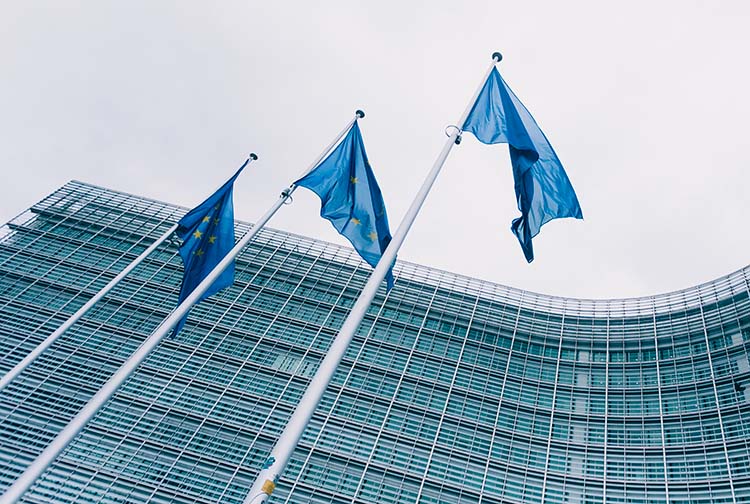

The appalling management of Next Generation funds
Spain has only executed a third of the European funds destined for the recovery of the economy, making it the country in the European Union that has returned the most funds. We publish an excellent article from VIA Empresa, where David Garrofé analyses the state of European funds allocation.

Most people think that Spain is a net recipient of European funds, the reality is that it has gone from being a recipient state of solidarity funds of some 8 billion euros to being a net contributor of more than 5 billion.
Next Generation: Recovery fund? No, a return fund
The poor management of European investments by the state is making the possibility of a transformation of the Spanish economic model a distant prospect.
David Garrofé – Entrepreneur
Something is not being done right when, despite the fact that most people think that Spain is a net recipient of European funds, the reality is that it has gone from being a recipient of solidarity funds to the tune of 8 billion euros to being a net contributor of more than 5 billion in the last operational period from 2014 to 2020. The mystery? Well, Spain has only spent 35% of the funds approved by Brussels and has failed to execute 65% of the available funds, as acknowledged in September 2020. In fact, Spain is the country that returns the most funds in the EU. Totally nonsensical, considering the high official unemployment rates and the endemic backwardness in both public and private investment in innovation.
If we want to find out the causes, I think they are quite obvious, and at the same time sad: convoluted legal and operational frameworks, highly bureaucratised and too complex to manage for most mortals. It is also necessary to add to the European complexity that of our administrations, which also place an extra layer of unnecessary requirements with a level of control by the intervention bodies that also scares the public administrators. It is quite clear that the growing distrust of the public and the desire of civil servants to protect themselves has necrotised a large part of the public administration. To top it all off, apart from the territorial areas recognised as Objective 1 zones because of their low economic development, the rest of the territories, with Catalonia at the forefront, can only access 50% of the co-financing of the programmes.
With this historical panorama of defaults and refunds, let us now add the famous and long-awaited EU-designed Next Generation recovery funds
I could tell a lot of anecdotes about autonomous communities and some ministries that directly give up presenting projects due to a lack of ideas or, even worse, due to laziness and/or lack of knowledge when it comes to managing them. Literally, the saying “don’t go there”, but instead of referring to politics, we are talking about the essential levers for the development of our economy and collective well-being.
With this historical panorama of non-compliances and refunds, let us now add the famous and long-awaited recovery or Next Generation funds designed by the EU so that Europe can make a leap forward in the field of innovation, sustainability and digitalisation and stop losing positions to China and the USA in the context of the COVID pandemic. We are talking about an initial 141 billion for Spain alone, of which some 70 billion would be in the form of credit, to be implemented over 4 years. Now, we said to ourselves, Europe is reacting and wants to do it quickly and well, as it did with the Marshall Plan in 1947. Well, the reality is very different, it is not being done quickly or well, and I will explain myself below.
Initially, reading the Next Generation programme’s explanatory statement, it seemed clear that these funds were to be focused on programmes to transform regional economies, with a strong role for companies to motivate them to collaborate with each other and with research and innovation organisations. It was also proclaimed that they would be launched imminently at the beginning of 2020 and that the criteria for action would be in place in time and form. The reality has been different. Dozens of consultancy firms, basically based in Madrid and with good personal and professional connections with politicians and technicians in the central administration, were the only way to obtain precious knowledge of how to access the funds. The greater the confusion, the higher the turnover, they dared to say in private. This functional mess also affected Catalonia, and the Catalan government created CORECO, a selection committee for strategic projects that would end up presenting all Catalan projects in a single package. This was a good initiative to encourage companies to identify collaborative projects with an impact and where more than 542 very interesting projects were presented, involving thousands of companies that had to mobilise some 42,000 million euros. Of these, the Catalan government on 2 February 2021, seeing that the Ministry of Industry wanted to select a few but very large ones called PERTE, opted to select, reduce and compact all those it had received to leave only 27. It was therefore necessary to wait until the criteria for the state calls were clear before presenting them to Madrid.
The first big warning to sailors: the Secretary General of Industry, Raúl Blanco, the following day, on 3 February 2021, made a public statement saying that the package presented by the Generalitat was “politicised” and therefore disqualifying all the work done by many entrepreneurs, universities and research centres. The message was clear. The Sánchez government would not leave this economic cornucopia in the hands of the autonomous communities, nor would it allow itself to lose the political benefits of its distribution. The Next Generation programme would be 90% centralised and would leave the territories to decide on a meagre 10%. However, as the capillarity of these was essential to reach companies and achieve the expenditure expected by Brussels, it guaranteed ERC that it would “territorialise” 50% of the funds in exchange for the approval of the general state budgets. The reality is that the central government designs and validates the calls for proposals according to its own criteria, and Catalonia has to hire more than 400 technicians to manage the paperwork and justification of this 50%. While the other 40% of the funds go to projects the Ministry sees fit. Drinking the Kool-Aid.
The money-making machine is running amok and still, someone blames our inflation mainly on Russia. And there are none so blind as those who do not want to see
On 26 May 2022, Brussels, after receiving many complaints from different organisations, employers’ associations and autonomous communities, and seeing the evolution of the few calls for proposals and the limited budget available for Next Generation, demands that the Spanish government actively involve the territories in designing policies and programmes. At the same time, seeing that the Spanish economic recovery is smaller and slower than expected, it increases the 141,000 million euros to 22,000 million more. The money-making machine is running amok and still, someone blames mainly Russia for our inflation. And there are none so blind as those who do not want to see.
The Minister of Economic Affairs Nadia Calviño on 19 July 2022, under great pressure from Brussels and having received an economic addendum that she does not know how to spend, opened up to the autonomous communities the possibility of presenting their own projects, of which Catalonia has presented more than 2,000 million euros, without having received any response to date.
Everything suggests that we are facing a new Plan E of President Zapatero, who in 2009 dedicated himself to generating public spending, without any sense, to stimulate the economy. An example of this is the call on 28 May 2021 aimed at local councils to renovate housing and change public lighting. These are clear examples of innovative and transformative objectives for our economy.
You don’t have to be a prophet to see how the party will end: an accumulation of returns of classic European funds to which the Next Generation funds will be added, with little impact on the country’s GDP growth, as the Bank of Spain and the Airef are now showing, and with an imperceptible transformation of our economic model. Just look at what the Treasury did in August 2021 by ceasing to publish data on the transfer of the fund’s resources to companies. No transparency for fear of criticism and political discredit. I advise anyone who likes to follow this issue not to hesitate to go and look for the good monitoring reports on the application of the resources that the CEOE is doing in its observatory, where it states that the current level of execution is 25%. No comment.
If we in this country talked less about budgets and more about accountability, we probably wouldn’t have so many problems
Some readers might reproach me for denouncing the actions of others without making proposals for amendments, but as it would not cost much to do so, at least minimally better, I will end this article with three concrete, swift and impactful proposals
- To truly and urgently territorialise the funds. Catalonia has major projects and the capacity to implement them.
- Use fiscal policy and allow tax deductions for companies that carry out innovative and transformative projects. It would be faster, more efficient and less bureaucratic. Countries such as France, Denmark and Italy are already doing this.
- Do not use the funds as a tool for electoral politics, using them for purposes improper to their original design. Necessary actions in the social sphere must be financed by the PGE or the European funds expressly foreseen.
If we, in this country, talked less about budgets and more about accountability and, accordingly, kept an eye on our rulers and their policies, we would probably not suffer so much from these problems.
You can read the original article here
11Onze is the community fintech of Catalonia. Open an account by downloading the super app El Canut for Android or iOS and join the revolution!
Leave a Reply
You must be logged in to post a comment.





Gràcies
Gràcies a tu, Joan!!!
Sembla que el més important sempre és el rèdit electoral. Feu una gran tasca per a que el poble prenguem consciència. Gràcies
Gràcies Cesc, el mèrit és vostre per seguir-nos i fer-ne difusió!
Sí, empoderar-se per fer valdre un sistema per damunt del capitalisme
Està difícil el tema, potser si tot peta ens despertarem i forçarem el canvi.
Molt bon article
Celebrem que t’hagi agradat, Manel, i moltes gràcies pel teu comentari!!!
Està clar que la ciutadania s’ha d’empoderar.
Doncs sí, aquí a 11Onze, ja fa temps que ho diem, ara falta que la societat Catalana ens cregui i ho faci… Moltes gràcies pel teu comentari, Pere!!!